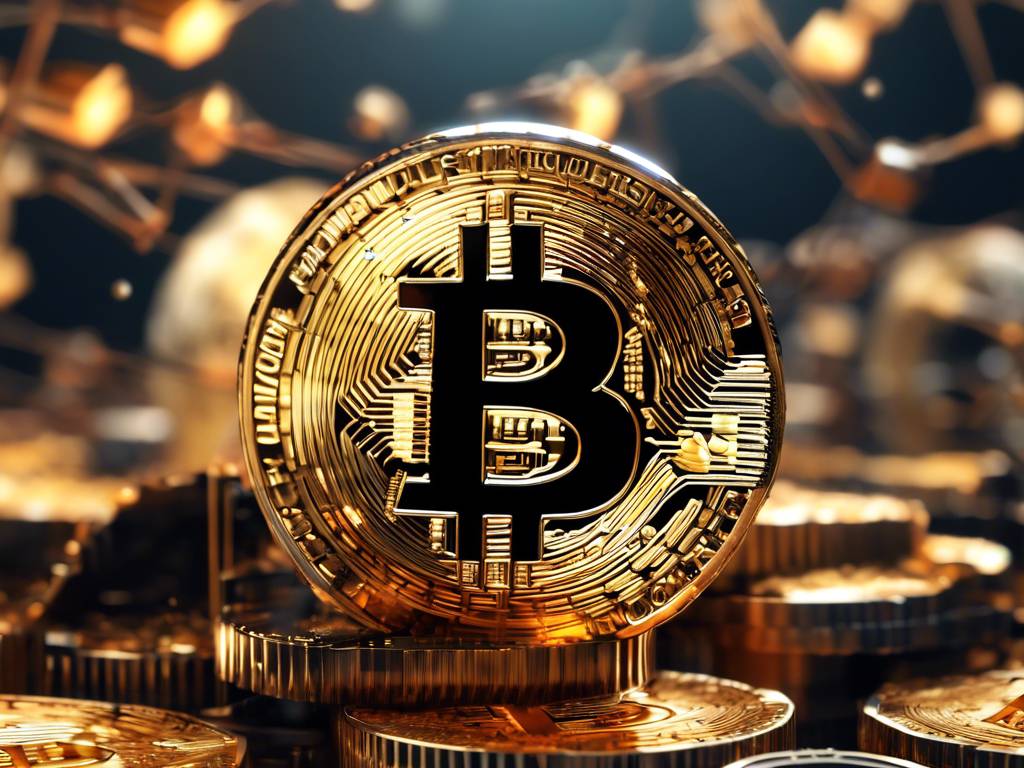Understanding the Impact of Decentralized Finance (DeFi) on Modern Financial Systems 🌐
Decentralized Finance, often referred to as DeFi, signifies a significant transformation in financial dealings. By utilizing blockchain technology, it empowers users to conduct peer-to-peer transactions without relying on traditional intermediaries like banks. This novel approach enables financial activities such as borrowing, lending, and trading through smart contracts and cryptocurrency, thereby bypassing centralized control mechanisms.
The Transition from FinTech to DeFi 🔄
DeFi emerged as an evolution of financial technology (FinTech), which aimed to improve accessibility and efficiency in financial services through digital means. While FinTech functions within established regulatory guidelines, DeFi sets itself apart by completely avoiding these centralized models, thereby creating an alternative ecosystem rooted in blockchain technology. The advent of cryptocurrencies like Bitcoin and Ethereum has been instrumental in this transition, allowing decentralized applications (often referred to as dApps) to replicate and enhance traditional financial services.
The Significance of DeFi in the Web3 Framework 🕸️
Within the Web3 paradigm, DeFi performs an essential role by democratizing access to financial services, granting users control over their assets independent of geographical or social limitations. It aligns seamlessly with the main tenets of Web3—decentralization and user empowerment—facilitating direct interactions with financial markets through decentralized networks. This shift promotes transparency and increases user autonomy, truly embodying the spirit of Web3.
Comparing DeFi and Traditional Financial Models ⚖️
Traditional finance, often abbreviated as TradFi, heavily relies on trust in centralized institutions like banks for money management and transaction processing. While these systems can be secure, they are vulnerable to systemic failures and potential corruption. In contrast, DeFi operates on “trustless” systems, where smart contracts on decentralized networks automatically execute transactions according to predefined conditions, thus minimizing the potential for interference from any single organization.
Trust Dynamics in Financial Transactions 🤝
In centralized finance, users place their trust in institutions to handle their funds securely and fairly. On the other hand, DeFi significantly reduces this trust dependency through the transparency and security offered by blockchain technology, permitting users to independently verify the integrity of transactions. This shift considerably decreases reliance on central authorities, thereby enhancing individual financial autonomy.
Challenges and Risks within DeFi ⚠️
While DeFi offers numerous benefits, it also presents certain risks. The still-developing technology introduces challenges such as:
- Vulnerabilities in Smart Contracts: Flaws or exploitable weaknesses within smart contracts can result in considerable financial losses, evidenced by various notable breaches.
- Lack of Regulatory Oversight: Operating outside the confines of traditional regulations provides flexibility but leaves users exposed with minimal legal safeguards in instances of theft or fraud.
- Frauds and Malicious Entities: The open nature of DeFi can attract fraudulent schemes, making comprehensive research and caution essential for users.
Notwithstanding these issues, DeFi signifies a groundbreaking shift in financial services, offering opportunities to those who have been marginalized by traditional financial systems while empowering greater control over individual assets.
Projecting the Future of DeFi 🔮
As DeFi continues to evolve, it is anticipated that technological advancements and enhanced security measures will mitigate existing risks. The forthcoming period might witness increased collaboration between DeFi and traditional finance, potentially leading to hybrid models that capitalize on the strengths of both systems. By harnessing blockchain advancements, DeFi strives to transform financial interactions, creating a more open, transparent, and secure environment for all users.
Hot Take: The Transformational Potential of DeFi 🌟
In conclusion, the transformation brought about by DeFi is both profound and progressive. It not only redefines financial interactions but also empowers individuals by providing greater access and control over their financial assets. The journey of DeFi is just beginning, holding the promise of a financial landscape that is more inclusive and equitable for all participants.





 By
By
 By
By


 By
By